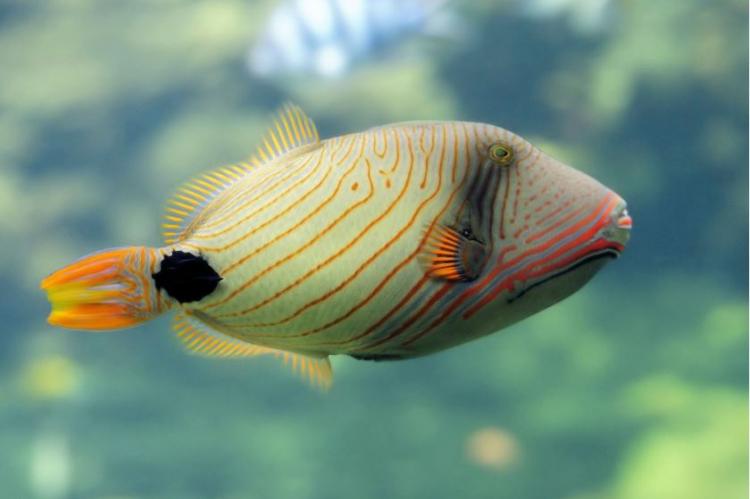Triggerfish helps coral reefs to thrive
Scientists working for Wildlife Conservation Society (WCS) have proposed that an unassuming fish species may have a positive influence in maintaining the coral reefs' ability to thrive and grow.
Based on their research, which covered more than 200 coral reef systems in the western Indian Ocean, the orange-lined triggerfish (Balistapus undulatus) was usually found among corals and algae that build reef systems. This fish is known to consume sea urchins that are detrimental to the reef structure, hence their presence is likely to have a beneficial effect on the coral reefs.
“It seems that maintaining a few orange-lined triggerfish increases the ability of coral reefs to grow because they prey on reef-eroding sea urchins. Consequently, a triggerfish's choice of food indirectly contributes to a reef’s ability to grow and stay ahead of rising sea levels,” said lead author Dr Tim R McClanahan, a senior conservation zoologist at WCS and coral reef expert.
In the course of the research, Dr McClanahan and Nyawira A Muthiga (also from WCS) studied algae, corals, fish and sea urchins as well as nearly 30 variables pertaining to coral reef health (like sea surface temperature, sunlight penetration data, etc) and alternative explanations.
The results suggest that subtle predator-prey interactions of fish and marine invertebrates were likely to be equal to or more important than the ocean’s environment in promoting reef growth. “Given the increasing bad news about hot ocean temperatures degrading reefs, it was heartening to learn that a key predator might compensate for some of the losses in reef growth,” Dr McClanahan said.
Another finding was that historical water temperatures fluctuations were more important than sporadic hot water periods in predicting a reef’s potential to grow. Consequently, not all reefs will be affected by the same stresses related to warmer temperatures
The authors stressed that correlation is not yet proof of causality, but maintain that protection for triggerfish species, which contribute very little food or income to coastal communities, would not hurt fisheries.
“Careful long-term studies of critical marine species such as triggerfish show the importance of understanding ecosystems and protecting species. The persistence of coral reefs into the future requires good science and it needs to be followed by equally good conservation strategies and actions ,” said Jason Patlis, WCS’s Director for Marine Conservation.


